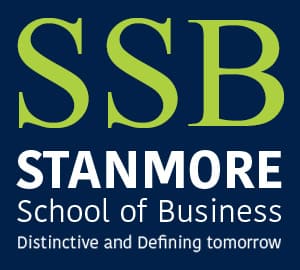Employment Success: Advanced Diploma in Understanding Business Improvement Techniques Case Studies
-- viewing nowBusiness Improvement Techniques are crucial for organizational success, and this course is designed to equip learners with the skills to implement effective change. Through case studies and real-world examples, learners will gain a deep understanding of business improvement techniques and how to apply them in various contexts.
4,155+
Students enrolled
GBP 140
GBP 202
Save 44% with our special offer
About this course
100% online
Learn from anywhere
Shareable certificate
Add to your LinkedIn profile
2 months to complete
at 2-3 hours a week
Start anytime
No waiting period
Course details
This unit focuses on understanding and mapping business processes to identify areas for improvement. Students will learn to analyze and evaluate current processes, identify inefficiencies, and develop strategies for improvement. • Unit 2: Lean Principles and Techniques
This unit introduces students to the principles and techniques of Lean, a methodology for eliminating waste and maximizing value. Students will learn to apply Lean principles to improve business processes and increase efficiency. • Unit 3: Quality Management and Control
This unit covers the principles and practices of quality management, including quality planning, quality control, and quality assurance. Students will learn to develop and implement quality management systems to ensure customer satisfaction and continuous improvement. • Unit 4: Business Improvement Techniques and Tools
This unit introduces students to various business improvement techniques and tools, including Six Sigma, Total Quality Management (TQM), and Business Process Re-engineering (BPR). Students will learn to select and apply the most appropriate techniques and tools to achieve business improvement goals. • Unit 5: Change Management and Leadership
This unit focuses on the skills and strategies required to lead and manage change in an organization. Students will learn to develop a change management plan, communicate effectively with stakeholders, and build a culture of continuous improvement. • Unit 6: Data Analysis and Interpretation for Business Improvement
This unit covers the principles and practices of data analysis and interpretation, including data collection, data visualization, and statistical analysis. Students will learn to use data to inform business decisions and drive improvement. • Unit 7: Business Process Re-engineering (BPR)
This unit introduces students to the principles and practices of BPR, a methodology for fundamentally changing business processes to achieve significant improvements in efficiency, quality, and customer satisfaction. • Unit 8: Supply Chain Management and Optimization
This unit covers the principles and practices of supply chain management, including supply chain design, supply chain optimization, and logistics management. Students will learn to develop and implement strategies to improve supply chain efficiency and reduce costs. • Unit 9: Employee Engagement and Motivation for Business Improvement
This unit focuses on the importance of employee engagement and motivation in driving business improvement. Students will learn to develop strategies to engage and motivate employees, including recognition and reward programs, training and development opportunities, and open communication. • Unit 10: Case Studies in Business Improvement
This unit provides students with the opportunity to apply the knowledge and skills learned throughout the program to real-world case studies. Students will work in teams to analyze case studies, identify areas for improvement, and develop and implement business improvement plans.
Career path
| Role | Job Market Trend | Salary Range (UK) | Skill Demand |
|---|---|---|---|
| Business Improvement Analyst | High demand (34% growth rate) | £35,000 - £55,000 per annum | Excellent analytical and problem-solving skills |
| Operations Manager | Stable demand (5% growth rate) | £40,000 - £65,000 per annum | Strong leadership and communication skills |
| Supply Chain Manager | High demand (25% growth rate) | £45,000 - £70,000 per annum | Excellent problem-solving and analytical skills |
| Quality Assurance Manager | Stable demand (3% growth rate) | £35,000 - £55,000 per annum | Strong attention to detail and analytical skills |
Entry requirements
- Basic understanding of the subject matter
- Proficiency in English language
- Computer and internet access
- Basic computer skills
- Dedication to complete the course
No prior formal qualifications required. Course designed for accessibility.
Course status
This course provides practical knowledge and skills for professional development. It is:
- Not accredited by a recognized body
- Not regulated by an authorized institution
- Complementary to formal qualifications
You'll receive a certificate of completion upon successfully finishing the course.
Why people choose us for their career
Loading reviews...
Frequently Asked Questions
Course fee
- 3-4 hours per week
- Early certificate delivery
- Open enrollment - start anytime
- 2-3 hours per week
- Regular certificate delivery
- Open enrollment - start anytime
- Full course access
- Digital certificate
- Course materials
Get course information
Earn a career certificate

